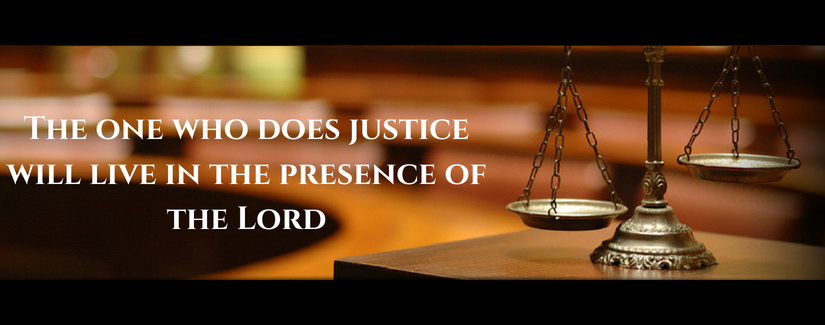So often, when someone thanks us for something, we might say, “It’s the least I could do.” As if it were some kind of badge of achievement to do the least thing possible. I think it’s human nature to try to do as little as possible, without being perceived as lazy or something. Sometimes we want to do as little as possible, and have others feeling good about it.
Well, I think it’s that kind of attitude that is behind today’s Liturgy of the Word. Certain things are expected of believers, and over the course of history, people have tried to get away with doing as few of those things as they absolutely need to do. The first reading sets the stage: Moses places the law before the people and tells them that they are a great nation, because they have a God so close to them, and who loves them enough to give them the whole law that they have received.
Now the whole law is more than we might think. Perhaps when we hear that, we think of the Ten Commandments, to which we also are bound in our discipleship. But for the Jewish community back then, there were a total of over six hundred laws and precepts that made up the law. Because of that, there was always this constant discussion over which of the laws was most important, and often people would be concerned more about a tiny little precept than about the whole big picture that God was trying to accomplish.
This is the attitude Jesus came to address with the Gospel. He wanted the people to get it right. He wanted them to have concern for people more than for semantics in the law. He wanted them to love as God loves, because if we do that, we’ll be keeping the law anyway. But people didn’t always accept that teaching. If they did, Jesus wouldn’t have had to go to the Cross, and there would have been no need to preach the Gospel.
So in today’s Gospel reading, Jesus makes a major correction. There was a law of purifying vessels before festivals, which is not unlike the way the priest washes his hands before the Eucharistic Prayer or the way that the vessels for Mass are purified after Communion. But somewhere along the way, the precept got mangled, and everyone was bound to scrupulously wash themselves and every vessel they owned before a feast. And Jesus chastises them for having more concern about a human tradition than about the real intent of the law.
The real intent of the law was obviously something way more important, way more personal. The real intent of that purification was the purification of our hearts. Jesus gives a rather horrifying list of sins at the end of the Gospel reading and notes that these are the things that defile; not some dirt on the outside of a cup or hands that had not been scrupulously cleaned. If we want to really purify ourselves for the festival, which is to say the Eucharist, then we have to be cleansed of our sins. That’s why we have the Sacrament of Penance, right?
James, in the second reading, picks up on the theme. If we really want to be thought to be wise in regard to keeping the law, then we have to keep ourselves unstained by the world, which would be the same thing as Jesus was saying, but also to care for those in need, with which Jesus would certainly not disagree! Indeed, that’s what was really at stake in the Gospel reading: people were more concerned about the minutiae of the Law than they were for securing justice for all God’s people.
The thing is, we are hearers of the Word. We have experienced the love of our Lord in so many ways. Everything that we have is a gift to us. We have to be wise in regard to all that, and to be certain that we keep the whole of the law. Not just those little minutiae, but the very spirit of the law, the law of love which binds all disciples and all people of good will. Because when we lose sight of that, the whole Church can go off the rails. And we have certainly seen the rotten fruit of that in these past weeks, haven’t we?
So our reflection in these days has to be on where and how we need to realign ourselves with the Law of love and resolve to live it more faithfully. Because, as the Psalmist says today, it is they who do justice who will live in the presence of the Lord. And that’s just where we all want to be.
